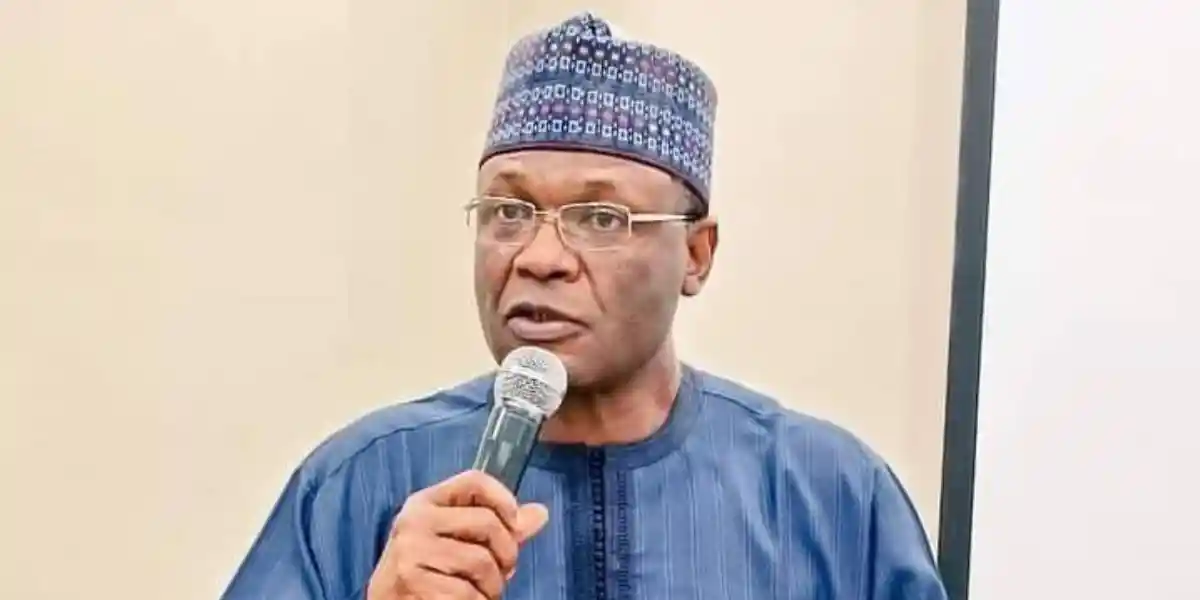INEC, Judiciary Under Scrutiny as TMG Warns of Threats to Nigeria’s Democracy
The Transition Monitoring Group (TMG) has released a scathing report on the conduct of Nigeria’s 2023 general elections, warning that the process inflicted serious damage on the credibility of the Independent National Electoral Commission (INEC) and Nigeria’s judiciary, while raising troubling questions about the future of democratic governance in the country.
TJ News Nigeria reports that the report, titled “Telescoping Nigeria’s Elections: 2023 Election Cycle in Perspective,” was presented on Wednesday at the CISLAC Conference Hall in Abuja.
Also Read: Tinubu Scared’ Of 2027 Coalition – Atiku’s Aide Reveals
TMG Chairman, Auwal Ibrahim Musa Rafsanjani, described the 2023 polls as a squandered opportunity for Nigeria to demonstrate real democratic progress, despite the adoption of new technologies and recent electoral reforms.
“A Missed Opportunity” – TMG Chairman
Speaking during the presentation of the report, Rafsanjani did not mince words about the failures of the electoral process.
“The 2023 general election was supposed to set a new benchmark for transparency and credibility,” he said. “Instead, the process has left many Nigerians disillusioned and questioning the future of democratisation in our country.”
According to the TMG report, one of the major failings of the election was INEC’s refusal to electronically transmit polling unit results to the INEC Result Viewing Portal (IReV) as required by the Electoral Act of 2022. This failure, the report stated, created widespread suspicion of manipulation and contributed to undermining the transparency of the process.
TMG specifically highlighted the refusal of the INEC Chairman at the National Collation Centre to comply with persistent demands from party agents for real-time verification of results via the IReV, describing this as a “brazen disregard” that significantly damaged public confidence in the commission’s integrity.
Judiciary’s Role Under Increasing Scrutiny
The report also raised alarm over the growing perception that Nigeria’s elections are increasingly determined in courtrooms rather than at polling stations. Rafsanjani warned that such developments pose a grave threat to the legitimacy of Nigeria’s electoral system.
“The judiciary’s credibility is now under intense scrutiny. There is rising concern over whether elections are truly being decided by voters or by courtroom technicalities,” he noted.
According to TMG, the perception that legal battles, rather than the ballot box, ultimately decide winners is eroding faith in the democratic process.
Vote Buying, Violence, and Ethno-Religious Mobilisation
Beyond technical failures, the report documented widespread malpractice before and during the elections:
-
Rampant vote-buying, particularly during party primaries
-
Electoral violence across several polling units
-
Polarisation driven by ethnic and religious mobilisation, especially in the buildup to the elections
-
Low voter turnout in parts of Northern Nigeria, largely attributed to disenchantment with governance and security failures
Despite the use of the Bimodal Voter Accreditation System (BVAS), the report confirmed that the transmission of polling unit results to the IReV portal was “widely neglected,” in clear violation of electoral law and citizen expectations.
Fears Over 2027 and Declining Democratic Standards
Looking ahead to the 2027 general elections, Rafsanjani expressed deep concern over Nigeria’s deteriorating political environment. He pointed to the disturbing trend of politicians frequently switching political parties, which he argued threatens to weaken competitive democracy and push Nigeria towards a de facto one-party system.
“The credibility of the 2027 elections is already under threat,” Rafsanjani warned. “The ideals of fair competition are being eroded, and the electorate’s right to choose among diverse candidates is being compromised.”
Off-Cycle Elections and Misuse of Security Forces
TJ News Nigeria learnt that while the report acknowledged some improvements in professionalism among security agencies during recent off-cycle elections in Kogi, Bayelsa, and Imo states, these gains were overshadowed by incidents of politically connected individuals allegedly using security personnel to perpetrate electoral misconduct.
The TMG noted that these practices continue to weaken the trust Nigerians have in both the security forces and the electoral process.
Call for Reforms and Collective Action
TMG called for urgent reforms and a renewed sense of commitment from all stakeholders in Nigeria’s democratic project. Rafsanjani emphasized that flawed elections inevitably lead to poor governance outcomes.
“There must be a collective understanding that flawed elections produce poor governance,” Rafsanjani stressed. “All the resources, commitments, and goodwill from citizens, development partners, and foreign governments must be properly harnessed to ensure that the 2027 elections are genuinely free, fair, and credible.”
The report concludes by urging INEC, the judiciary, security agencies, political parties, and the electorate to take decisive steps in rebuilding public trust and safeguarding Nigeria’s democratic future.






